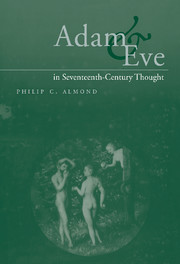2 - The perfection of man
Published online by Cambridge University Press: 18 November 2009
Summary
THE GROWN OF CREATION
And God blessed them, and God said unto them, Be fruitful and multiply, and replenish the earth, and subdue it: and have dominion over the fish of the sea, and over the fowl of the air, and over every living thing that moveth upon the earth.
Genesis 1.28To seventeenth-century readers of Genesis 1.28, its meaning was self-evident. They read it through the Graeco-Christian acceptance of human ascendancy. According to this, human ascendancy and the dominion of man over all nature was a central part of God's plan. Man was the centrepiece of creation. ‘Man, if we look to final causes, may be regarded as the centre of the world’, declared Francis Bacon, ‘insomuch that if man were taken away from the world, the rest would seem to be all astray, without aim or purpose.’
The central place of man in the universe was not the consequence of the belief that the earth was the centre of the universe. Quite the contrary. Arthur Lovejoy has shown that it was not the pre-Copernican view of the universe which was fitted to give man a high sense of his own importance and dignity. Rather the earth was the place farthest removed from the heavenly realms, a diabolocentric world with hell at its centre. The world received its status from its human occupants:
- Type
- Chapter
- Information
- Adam and Eve in Seventeenth-Century Thought , pp. 33 - 64Publisher: Cambridge University PressPrint publication year: 1999

